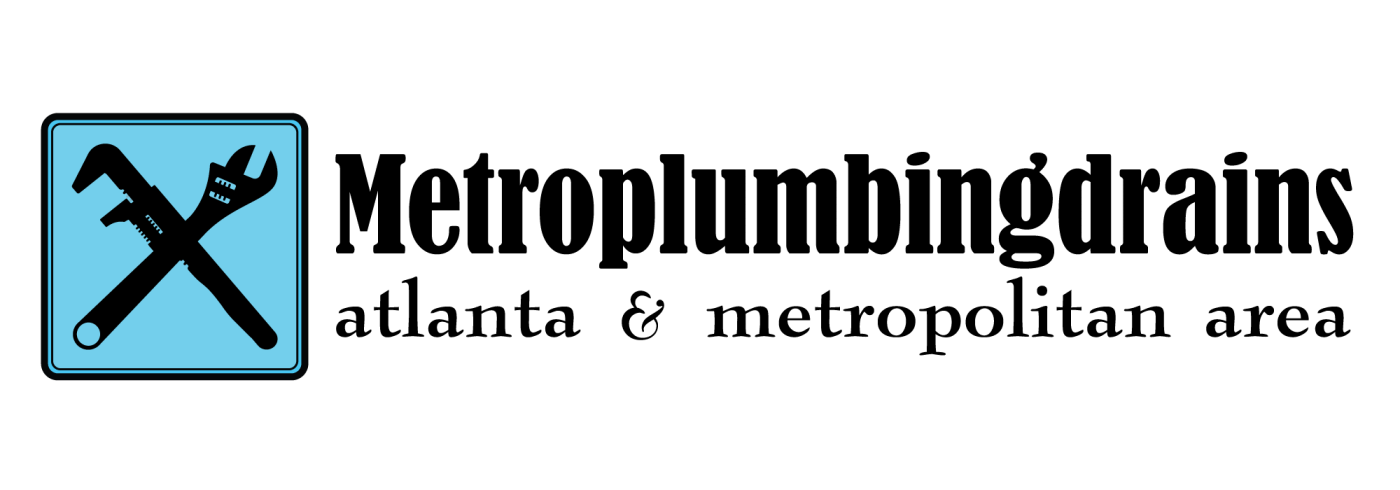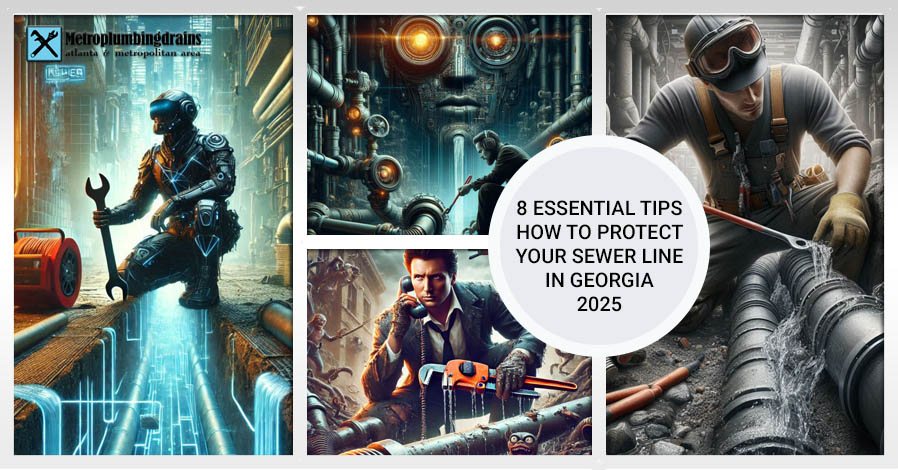Georgia’s Sewer Line Main Issues
Sewer line issues are a significant concern for homeowners nationwide. In the United States, sewer line backups and collapses result in substantial financial losses for both homeowners and businesses. These issues can disrupt daily life, cause extensive water damage, and lead to costly repairs and replacements. The situation in Georgia, particularly the Atlanta Metro area, presents unique challenges due to factors like aging infrastructure and the state’s humid climate.
The Scope of the Problem
According to the Environmental Protection Agency (EPA), sewer overflows and backups are a major environmental and public health concern. These incidents can contaminate waterways and pose risks to human health.
Georgia-Specific Challenges
- Aging Infrastructure: Many homes in Georgia, especially in older neighborhoods, have aging sewer lines made of materials like clay or cast iron. These materials are prone to deterioration, corrosion, and cracking over time.
- Tree Root Intrusion: Georgia’s lush environment provides ideal conditions for tree root growth. Aggressive tree roots can penetrate sewer lines, causing blockages and significant damage.
- Ground Shifting: Shifting soil due to factors like heavy rainfall, drought, and construction activity can put stress on sewer lines, leading to misalignments and cracks.
Understanding the Warning Signs
Before delving into preventative measures, it’s crucial to recognize the signs of potential sewer line problems:
- Slow Draining: Water draining slowly from sinks, showers, and toilets is a common early indicator of a partial blockage.
- Gurgling Noises: Unusual gurgling sounds coming from drains or toilets often suggest a partial blockage or a problem with the sewer vent.
- Foul Odors: Unpleasant sewer odors emanating from drains or around the property are a strong indication of a blockage or a leak in the sewer line.
- Sewer Backups: The most severe sign is a sewer backup, where wastewater overflows into the basement or other areas of the home.
8 Essential Tips to Protect Your Sewer Line
1. Regular Inspections
Schedule annual video inspections of your sewer line. Video inspections with specialize sewer cam allow plumbers to visually assess the condition of your pipes, identify potential issues like tree root intrusion or cracks, and address them proactively. Early detection can prevent costly repairs and disruptions.
2. Mindful Flushing Practices
- Only flush toilet paper and human waste down the toilet.
- Avoid flushing anything else, including:
- Wet wipes (even those labeled “flushable” can cause clogs)
- Paper towels
- Feminine hygiene products
- Diapers
- Cotton balls
- Dental floss
- Food scraps
- Grease
- Avoid flushing anything else, including:
3. Grease Management
Never pour grease down the drain. Grease solidifies in pipes, leading to clogs and potential backups. Pour cooled grease into a disposable container and discard it in the trash. Use hot water and a degreaser to clean dishes and prevent grease buildup in sink drains.
4. Tree Root Control
Trees can cause significant damage to sewer lines. The roots of trees are naturally drawn to the moisture in sewer pipes. Once they infiltrate the pipes, they can cause blockages and cracks, leading to costly repairs. Regularly trim tree roots and keep an eye on trees near your sewer lines. Consider replacing old pipes with plastic ones to prevent root intrusion. Modern plastic pipes are more resistant to root infiltration and are less likely to crack.
5. Install a Backwater Valve
Heavy rain and flooding can cause sewage to flow back into your home, leading to significant water damage. A backwater valve can prevent this by allowing sewage to flow out of your home but not back in. This simple addition can save you from costly water damage restoration and keep your home safe during severe weather. Professional sewer line services in the Atlanta Metro area can help you install this essential device.
6. Address Foundation Issues
Foundation problems can affect your sewer lines. When your home’s foundation shifts or settles, it can put pressure on your sewer pipes and cause them to crack or break. Ensure your home’s foundation is in good condition to prevent damage to your sewer system. Regularly inspect your foundation for signs of cracks or shifting, and address any issues promptly. If you notice any problems, seek professional help to prevent further damage to your sewer line.
7. Partner with a Trusted Plumbing Professional:
- Choose a reputable plumbing company with expertise in sewer line maintenance and repair.
- Look for a company with a proven track record, positive customer reviews, and a commitment to customer satisfaction.
- MetroPlumbingDrains has been serving the Atlanta Metro area for over 15 years, providing reliable sewer line services, including inspections, repairs, and replacements.
8. Upgrade Aging Pipes
If your home has old clay or cast iron pipes, consider upgrading to PVC pipes. Modern materials like PVC are more durable and less prone to damage. Clay and cast iron pipes are more susceptible to cracking and root intrusion, while PVC pipes are more resistant and have a longer lifespan. Upgrading your pipes can save you from frequent repairs and extend the life of your sewer system.
The Importance of Proactive Maintenance
Investing in proactive sewer line maintenance offers significant benefits:
- Reduced Repair Costs! Early detection and prevention can significantly reduce the cost of repairs.
- Minimized Disruptions! Proactive maintenance helps prevent emergency situations like sewer backups, which can cause significant disruption to your daily life.
- Increased Property Value! A well-maintained sewer system can enhance the value of your property.
- Peace of Mind! Knowing your sewer line is in good condition provides peace of mind and reduces stress.
Proactive and Informed Approach
Protecting your sewer line in Georgia requires a proactive and informed approach. By understanding the common causes of damage, implementing these preventative tips, and partnering with a trusted plumbing professional like MetroPlumbingDrains, you can safeguard your investment, minimize disruptions, and ensure the smooth functioning of your plumbing system for years to come.

